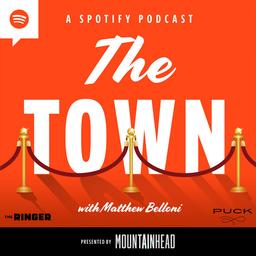As DC ushers in a new era with James Gunn’s Superman, Marvel turns to its first family. With Friday’s release of The Fantastic Four: First Steps, one of Stan Lee and Jack Kirby’s most iconic creations will enter the Marvel Cinematic Universe. There have been previous incarnations of the Fantastic Four, but unless you believe that 2005’s Fantastic Four is a misunderstood work of genius—I certainly don’t, but I will hear your arguments for it—these heroes have never gotten their proper due on the big screen. A superhero team as storied as the Fantastic Four joining the MCU feels long overdue; the question is, has it come too late?
Since Avengers: Endgame marked the spiritual end of the Infinity Saga in 2019, the MCU has been all over the place. While there’ve been billion-dollar successes in the years since (Spider-Man: Far From Home, Deadpool & Wolverine), the MCU has made just as many headlines for its high-profile misses. Ant-Man and the Wasp: Quantumania was a critical and commercial failure that was meant to introduce Marvel’s next big bad, Kang the Conqueror, only for the villain to be sidelined in light of accounts of abuse by actor Jonathan Majors. Depending on who you ask, Chloé Zhao’s Eternals was either a bizarre flop or an underappreciated gem. (I will make the argument for the latter.) The Marvels was the biggest box office bomb in the MCU’s history, barely passing $200 million against a roughly $375 million budget. In this tumultuous stretch, a trend emerged: Major team-up movies (Far From Home, Deadpool & Wolverine) and sequels to established hits (Black Panther: Wakanda Forever, Guardians of the Galaxy Vol. 3) could still move the needle, but everything else was more liable to fail.
Perhaps this downturn is an inevitable consequence of the MCU’s longevity: Expecting fans to dutifully follow every installment of a cinematic universe for nearly two decades—to say nothing of the companion shows on Disney+—is a major ask. But it certainly doesn’t help when the projects that can still attract moviegoers end up shitting the bed. Even with Sam Wilson (Anthony Mackie) taking over for the more established Steve Rogers (Chris Evans), Captain America is a marquee Marvel hero—someone whose appeal seems as sturdy as his trusty vibranium shield. But February’s Captain America: Brave New World didn’t just fail Sam Wilson: It became the MCU’s nadir. Bad reviews and a B-minus from audiences on CinemaScore—the lowest grade an MCU movie has ever earned—sealed Brave New World’s fate as another Marvel misstep. If the break-even point for Brave New World was $425 million, as Deadline estimated, then the film was also a modest misfire, grossing around $415 million. But the most damaging repercussion of Brave New World’s bad buzz is that it might’ve hindered the performance of the studio’s next movie, one that harkened back to the MCU’s heyday.
In May, Marvel released the final film of Phase 5, Thunderbolts*, which followed a collection of antiheroes like Bucky Barnes (Sebastian Stan), Yelena Belova (Florence Pugh), and John Walker (Wyatt Russell). In terms of tone and execution, Thunderbolts* was the MCU’s answer to The Suicide Squad: a ragtag group that overcomes their differences, confronts their insecurities, and learns to work together. The film’s overarching depression metaphor was a little heavy-handed, but on the whole, Thunderbolts* was Marvel’s best outing since Guardians 3—charming, thoughtful, fun, and, at times, actually filmed in real locations. (It was also revealed at the end of the movie that the Thunderbolts were rebranded as the New Avengers; hence the asterisk in the title.)
Unfortunately, even overwhelmingly positive reviews weren’t enough to get Thunderbolts* out of the red. While Thunderbolts* is still the ninth-highest-grossing film of the year so far, grossing just north of $380 million, it did so against a $180 million production budget (which doesn’t account for marketing costs that added another $100 million to its tally). In other words, these kinds of numbers would qualify as a success for something like Sinners, which was made for half the cost; for Thunderbolts*, these totals can’t be chalked up as anything but a disappointment. And when a good MCU movie is no longer capable of reaching the $400 million threshold, I suspect that Kevin Feige and the rest of the Marvel brain trust must be at DEFCON 2.
So, where does the MCU go from here? First Steps offers hope for a rebound: Taking place on an alternate, retro-futuristic Earth, featuring a story with no ties to earlier phases of the MCU, it’s the kind of movie that can be appreciated on its own terms. This approach might prove appealing to casual fans who just want a fun time at the movies; MCU diehards, meanwhile, will know that First Steps is a major building block to the next Avengers movie. Either way, if marquee Marvel heroes are still reliable box office draws, then the Fantastic Four should fit the bill. (Provided the audience’s appetite for superhero blockbusters this summer hasn’t been sated by Superman.) But a more revealing window into the MCU may be what projects lie ahead—and, just as crucially, what’s been omitted.
Assuming the release dates don’t shift, another Marvel movie won’t arrive for a full year, when Spider-Man: Brand New Day makes its way into theaters on July 31, 2026, followed by Avengers: Doomsday in December 2026 and Avengers: Secret Wars in December 2027. (There are four untitled Marvel films slated for 2028, but as with any project that’s still in the “untitled” phase a few years from release, that’s subject to change.) As things stand, however, First Steps and Brand New Day would mark the longest gap between Marvel movies since the start of the COVID pandemic.
Viewed one way, this could be a concession that the MCU of late has leaned too far into quantity over quality; a longer break between films might allay the encroaching sense of superhero fatigue. But it’s also notable that the projects that’ve long been on the back burner, such as the Blade reboot, don’t seem to be any closer to coming to fruition. Even if Blade does eventually happen—spare a thought for Mahershala Ali throughout this ordeal—the MCU scaling back could change how the cinematic universe is perceived. Instead of a constant churn of blockbusters that start to feel like homework, MCU releases might become more eventized, almost exclusively building up to movies centered on signature heroes (Fantastic Four, X-Men) and major crossover events (Avengers). There will always be audience demand for the Spider-Mans of the world; these days, the same can’t be said for the deeper cuts like the Thunderbolts.
In any case, it’s hard to envision a scenario in which the MCU can return to its glory days. Superheroes will remain a fixture in the current blockbuster landscape, but moviegoers have shown they’re just as eager to indulge in video game adaptations (A Minecraft Movie, The Super Mario Bros. Movie), live-action remakes of modern animated classics (Lilo & Stitch, How to Train Your Dragon), and, thank god, thought-provoking horror cinema (Sinners, 28 Years Later). A quality-over-quantity version of the MCU, however, can still have cultural staying power—and this weekend is its chance to prove it. Marvel needs a fantastic start to Phase 6. Anything less, and First Steps will take the studio back to square one.






